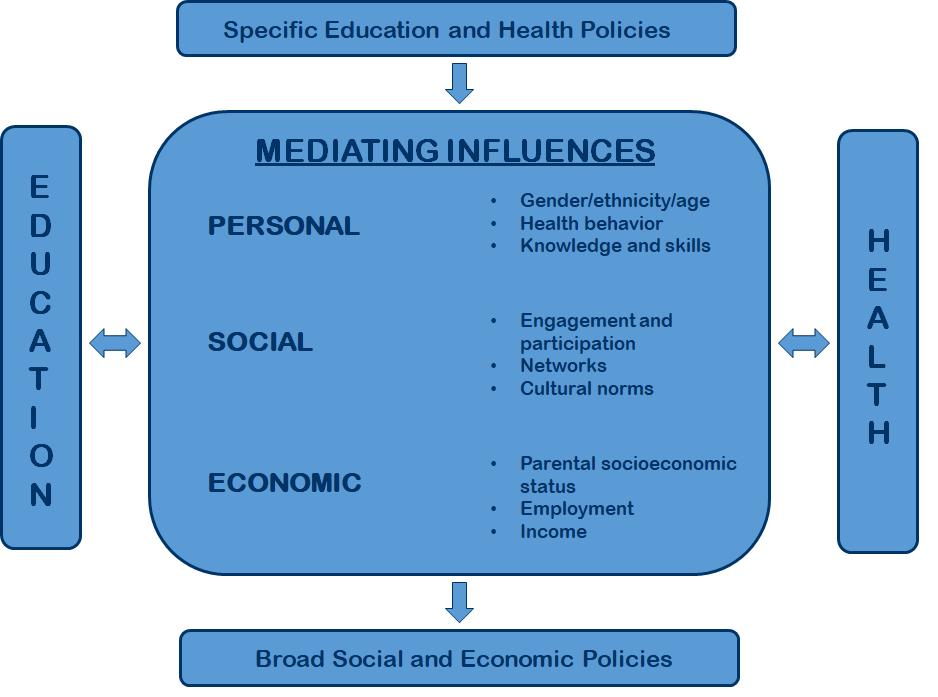
2 minute read
Lack of education in healthcare (Kyle Dickey
L A C K O F E D U C A T I O N I N H E A L T H C A R E
K Y L E D I C K E Y ( B S P S )
Advertisement
Education's Importance in Healthcare
Education is a highly influential factor in the quality of healthcare people receive globally. A lack of education in healthcare can be primarily interpreted as a patient’s lack of knowledge on a condition that affects them, either due to a failure on behalf of healthcare professionals to educate them or through the patient’s lower education restraining them from having access to the information. According to the Organization for Economic Co-operation and Development (OECD), which includes 37 member countries across Europe, Asia, North and South America, and Australia, people with lower levels of education are expected to live on average 6 years less than those with a college degree or equivalent education.1
Figure 1: Adapted from Health Impact of Education: a review, Institute of Public Health in Ireland.
Healthcare education in practice is the information healthcare professionals provide to patients on the disease that is affecting them, regardless of it being acute or chronic and if it is curable or only can be managed. Examples of healthcare education include a doctor counseling a patient with asthma that they should avoiding being around smokers as the cigarette smoke could trigger an asthma attack or a physician's assistant providing exercise and weight management information for an obese patient. As crucial as this information may be to a patient, they may be unaware or misinformed on their condition and actively do things that do not better or even worsen their condition. Noted in a 5-year American study, healthcare professionals were not regularly educating patients on how to manage their chronic conditions. In the 6 types of health education needed for a variety of conditions ranging from asthma to depression to diabetes, not a single education category achieved higher than a 50% education rate across all healthcare professionals including nurses, physician’ s assistants and even doctors.2
Resolution Attempts
Attempts to manage this issue include the American Medical Association, CDC, and other American health organizations offering free or low-cost training to improve healthcare workers’ interpersonal skills to allow them to better communicate the information they need totell the patients effectively.4 Attempts like this should be supported globally and even requirements for patients post-diagnosis of a chronic condition with followup annual counseling free of charge would allow for vital health information to be accessible to all who need it.
Personal Opinion
Personally, I believe that the lack of education in healthcare needs to be addressed as it leaves disadvantaged people based on their education at a greater disadvantage. Those lacking health education do not receive the assistance they need from healthcare professionals to be aware of and make conscious decisions to better their health.
References
OECD/EU (2018), Health at a Glance: Europe 2018: State of Health in the EU Cycle, OECD Publishing, Paris. https://doi.org/10.1787/health _glance_ eur-2018-en Ritsema TS, Bingenheimer JB, Scholting P, Cawley JF. Preventing Chronic Disease. Centers for Disease Control and Prevention. https://www.cdc.gov/pcd/issues/2014/13 _ 0175.htm Accessed March 29, 2021.







